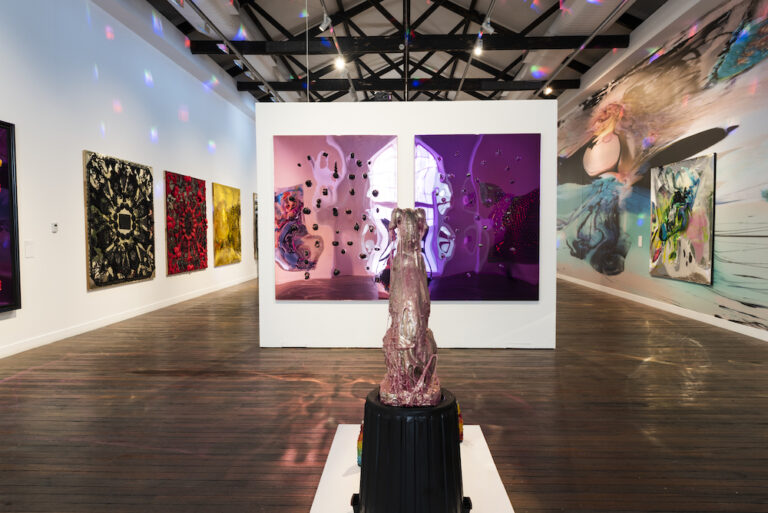
Lockout laws take new twist
Opinion By ANDREW WOODHOUSE
Kings Cross is at the epicentre of a storm. This week the state government’s Joint Select Committee on Sydney’s Night Time Economy delivered its report. It recommended 40 changes to controversial lockout laws.
Lockouts were introduced in February 2014 to reduce alcohol-fuelled violence. Teenager, Daniel Christie, died in January 2014, the victim of a one-hit punch. He had been celebrating New Year’s Eve in Kings Cross. His assault, a random attack at 9pm, was just metres from the site where teenager Thomas Kelly had also been fatally punched in July 2012.
The current laws require 1.30am lockouts and 3am last drinks at bars, pubs and clubs in the Sydney CBD entertainment precinct. The precinct is bounded by Kings Cross, Darlinghurst, Cockle Bay, The Rocks and Haymarket.
Significantly, the Star Casino, a massive source of government revenue and one of Sydney’s most violent licensed venues, is exempt, as were CBD venues with poker machines.
Impacts
While data show that the lockout laws helped reduce alcohol-related violence, concerns were raised about the impact of the law on Sydney’s night-time economy.
In 2016 the law was subject to an independent review, conducted by former High court Judge, Ian Callinan QC. He said the laws were justified. Nevertheless, the government announced it would relax the last drinks and lockout laws by half an hour for live entertainment venues in a two-year trial.
Last month the NSW Premier prematurely announced lockout laws would be repealed by the end of the year, except Kings Cross, although the Committee’s review was still incomplete.
Medical professionals and emergency services workers opposed any repeal, and still do.
This week, the Committee noted the impact of the 2014 laws in the Cross. It found “from January 2014 to March 2019, non-domestic assaults decreased by 52.8 percent. This equates to roughly 1,921 fewer assaults … due to the historical nature of Kings Cross, venue density and the small size of the precinct, there is a high risk that if the 2014 laws were removed, violence would increase and the rate of assaults would begin to rise again.”
The Australian Medical Association NSW and St Vincent’s, Darlinghurst, support lockouts. They note that they have reduced violence, relieved budget overruns on financial resources and reduced trauma and injury. “We’ve gone from a time when people were dying, to a time when people are not dying,” they said.
This week the Committee recommended: extending bottle shop hours by one hour, banning sales of shots after midnight, asking venues to engage with the private-sector to promote community safety programs, improve the notification process of breaches, better co-ordinating venue inspections in Kings Cross, installing better street lighting, appointing an area co-ordinator, introducing a good neighbour policy, seeing whether 24-hour rail transport is feasible, only using ID scanners after 10pm on Friday and Saturday nights, freezing new liquor licences until a review in 2020, and oddly, asking venues to self-report their own breaches.
It found KX was “not yet sufficiently changed to warrant a complete reversal” of lockouts and recommended another review in 12 months.
An increase in alcohol-related harm
Brendan Martignago, owner of Dulcies, a “subterranean cocktail bar” at 44B Darlinghurst Road, Kings Cross, which has been operating for a year. He says he doesn’t understand how new self-reporting schemes would work. “I’d be interested to know more,” he said, adding “we already report to the Liquor Authority and Police, who conduct weekly visits.”
“Long gone are the days when 45,000 people invaded the cross creating problems.” He sees the future of the Cross as positive, with a healthy mix of food, drinks and entertainment.
Justin Hemmes, beer bar baron, said “hospitality providers need to cater for people all hours of the day and remove the after-dark ghost-town experience we currently have.”
Doctor Preisz, Director, St Vincent’s emergency department, says safety comes first. Alcohol causes harm. The more alcohol, the more harm. “Sydney is more likely to experience an increase in alcohol-related harm if the Berejiklian government accepts these recommendations,” he said.
Consider New York. It has doubled its tourists in the mid-town, Times Square area since the 1990s. It now attracts 60 million tourists a year. The same area reported 2,600 major crimes last year compared to 23,000 in the 1990s. When crime dropped tourism flourished.
Alex Greenwich MP, Member for Sydney and Deputy Chair of the Committee, said “I support the repeal of the lockouts in Kings Cross … a lot of the issues that existed in Kings Cross were a result of the saturation of 24/7 licenced venues all next to each other.”
Just how this saturation can be reversed is unclear. But with more reviews of the reviews on the way, residents still live in a state of flux.









